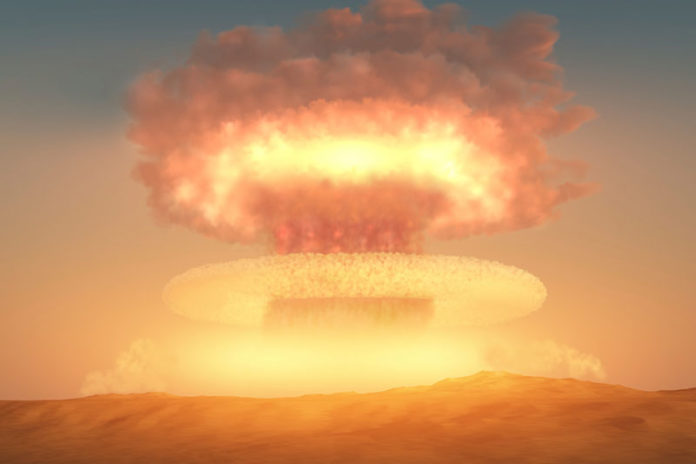Evidence is surfacing that point to chemical weapons being in the hands of ISIS.
Just last week, the Kurdish media reported that a rocket suspected of carrying chemical weapons was fired by ISIS at Kurdish forces guarding the largest dam in Iraq. Destruction of the dam could impact millions of Iraqi citizens and the dam’s instability has been a point of concern for almost ten years. The yellow smoke produced from the rocket is most likely HD, or “sulfur mustard”, a class one chemical agent. Field tests conducted by the U.S. military on the mortars from a different attack on August 11th of this year concluded the type of chemical agent.
For those unfamiliar with HD, it is a chemical warfare agent most widely known by the name “Mustard Gas” and its use in the Vietnam Conflict. HD can be in the form of a solid, a liquid, or a gas. Contact with the agent produces blisters on the skin not dissimilar to burns. When released into the air as a vapor exposure can come from skin or eye contact and inhalation. It can be carried long distances by the wind. It can also be used to contaminate water supplies causing internal and external symptoms.
Meanwhile, 3,500 troops stationed in Iraq are being prepped for encounters with chemical weapons due to the attacks. The International Business Times reports that a team of from the Iraqi government plans to visit the Kurdish region of Iraq for a formal investigation regarding the allegations that ISIS has been using chemical weapons.
Pentagon Press Secretary, Peter Cook, is reported as saying, “The commanders in the field are making sure their troops are adequately prepared for the threats they may face,”.
Kurdish media has also made mention of ISIS using chemical weapons against Kurdish fighters of the People’s Protection Units (YPG) in Syria. Kurdistan Regional Government officials in Northern Iraq have cited three chemical attacks in 2015 so far.
There is a suspicion that the HD came from Syria who, in 2013, admitted to having large quantities of mustard gas upon giving up its cache of chemical weapons. There are also rumors of the agents coming from Iraq and being part of the much debated and elusive WMD program that took place under the regime of Saddam Hussein.
While for now the attacks have been isolated to Iraq and Syria, questions remain about the transportation of these weapons and their proliferation as well as the ability for ISIS to produce more sophisticated weapons and conduct more sophisticated attacks.































